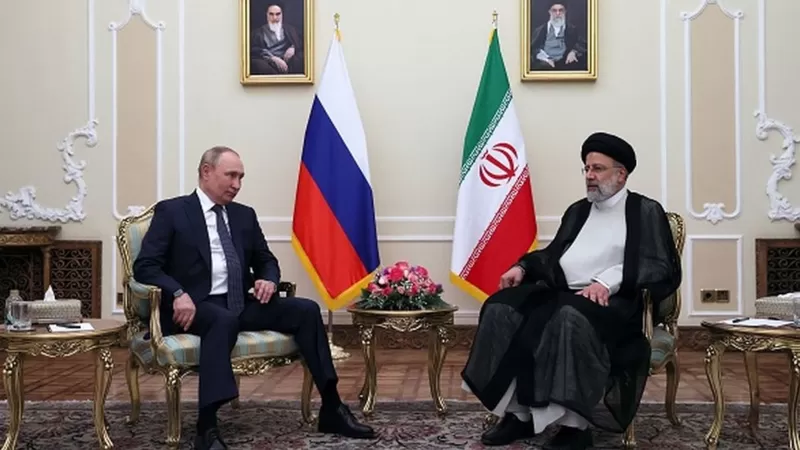Monitoring Desk: Russian President Vladimir Putin is confident that his tour to Iran will consolidate Iran, Russia, and Turkey’s tri-lateral relations that would help to mitigate the economic health Russia is facing after extreme economic sanctions from NATO countries except for Turkey.
Against the backdrop of Vladimir Putin’s visit to Tehran, Russia’s Gazprom and the National Iranian Oil Company NIOC signed a memorandum of understanding and concluded a $40 billion deal, which includes, among other things, the development of two gas and six oil fields. The deal was closed online in a virtual ceremony attended by Gazprom Deputy Chairman Vitaly Markelov and NIOC CEO Mohsen Heustemer
Russian President Vladimir Putin arrived in Iran which is his second foreign visit after the start of the war in Ukraine. Tehran remains one of Moscow’s few allies in the international arena. Putin will attend a meeting with Iranian President Ibrahim Raisi and Turkish President Recep Tayyip Erdogan, and will hold bilateral talks with each of the leaders. He will also meet with Iran’s spiritual leader Ayatollah Khamenei for the fifth time. It is expected that Tehran will enhance wheat exports to Russia. Putin has limited his international visits since the start of the Ukraine-Russian war.

In June, he made his first trip since February to Tajikistan and Turkmenistan. Against the backdrop of Vladimir Putin’s visit to Tehran, Russia’s Gazprom and the National Iranian Oil Company NIOC signed a memorandum of understanding and concluded a $40 billion deal, which includes, among other things, the development of two gas and six oil fields. The deal was closed online in a virtual ceremony attended by Gazprom Deputy Chairman Vitaly Markelov and NIOC CEO Mohsen Heustemer. Planned projects include the development of the Kish and North Pars gas fields, the completion of previously launched projects for the supply of liquefied natural gas and the construction of export gas pipelines. Iran has the second largest reserves of natural gas after Russia, but US sanctions prevent Tehran from accessing new technologies for its production and hinder the development of gas exports.
